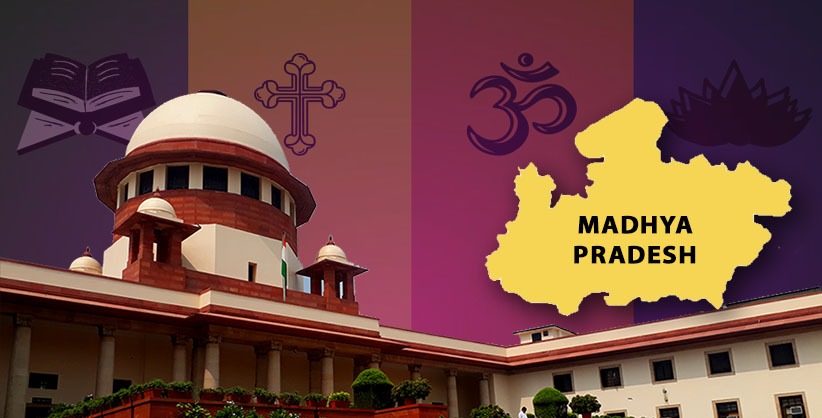NEW DELHI: The Supreme Court on Tuesday issued notice on a plea by the Madhya Pradesh government against the High Court's order, which restrained it from taking any coercive action against a person for not giving 60 days prior intimation to the District Magistrate before converting to other religion.
The top court, however, refused to suspend the High Court's judgement, saying all conversions can't be called illegal.
A bench of Justices M R Shah and C T Ravikumar sought a response from Samuel Daniel, the petitioner on whose plea the High Court had stayed operation of Section 10 of Madhya Pradesh Freedom of Religion Act.
Solicitor General Tushar Mehta, appearing for the Madhya Pradesh government, said that there was no prohibition for marriage or conversion but it was only required to intimate the District Magistrate. He sought a stay on operation of the High Court's judgement.
The bench, however, said all conversion cannot be termed as illegal. We can say intimation but no penal action can be imposed for contravention, the bench added.
Mehta pressed saying it would have tendency of replicating. The court, however, was not impressed.
The Madhya Pradesh High Court had in November, 2022 had restrained the state government from prosecuting adult citizens if they solemnise marriage on their own volition and violate Section 10 of the Madhya Pradesh Freedom of Religion Act (MPFRA), 2021.
A bench of Justices Sujoy Paul and Prakash Chandra Gupta of the Jabalpur Bench of the Madhya Pradesh High Court had found Section 10 of the MPFRA prima facie unconstitutional.
The provision required individuals, intending to convert, and the priest who would carry out the conversion, to notify the District Magistrate of their intention 60 days in advance.
Section 10 makes it obligatory for a citizen desiring conversion to give a declaration in this regard to the District Magistrate which in our opinion ex facie, unconstitutional. Thus, till further orders, respondent shall not prosecute the adult citizens if they solemnize marriage on their own volition and shall not take coercive action for violation of Section 10 of Act of 21," the court had said.







